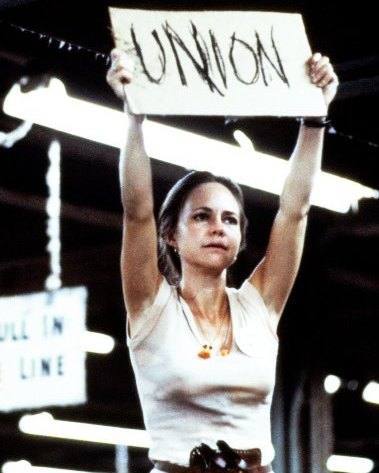Sally Field secured her place as one of Hollywood’s finest actors with her powerful performance in Norma Rae, a film released in 1979. Her portrayal of a determined textile worker fighting for labor rights left audiences in awe and earned her an Academy Award. However, behind the scenes, the journey was filled with emotional struggles, self-doubt, and even physical pain, including a few fractured ribs, all contributing to a performance that would never be forgotten.
The significance of unions cannot be overstated, as they have been instrumental in securing fundamental worker rights such as minimum wage, safety regulations, healthcare benefits, paid holidays, the 40-hour workweek, and protections against child labor. Even for those who are not union members, these rights would not exist without their advocacy. Sally Field’s performance as a woman standing up for herself and her coworkers serves as a lasting reminder of the progress that has been made in the fight for fair working conditions.
Her performance in Norma Rae not only cemented her reputation but also likely inspired future performances by actresses such as Meryl Streep in Silkwood and Julia Roberts in Erin Brockovich. However, the role came at a cost. At the time, Sally Field was still struggling to break away from her television persona, having been known for lighthearted roles in shows like The Flying Nun and Gidget. Hollywood did not take her seriously, and she felt the need to prove herself. The opportunity to play Norma Rae Webster was a chance to redefine her career, though she knew it would be challenging.
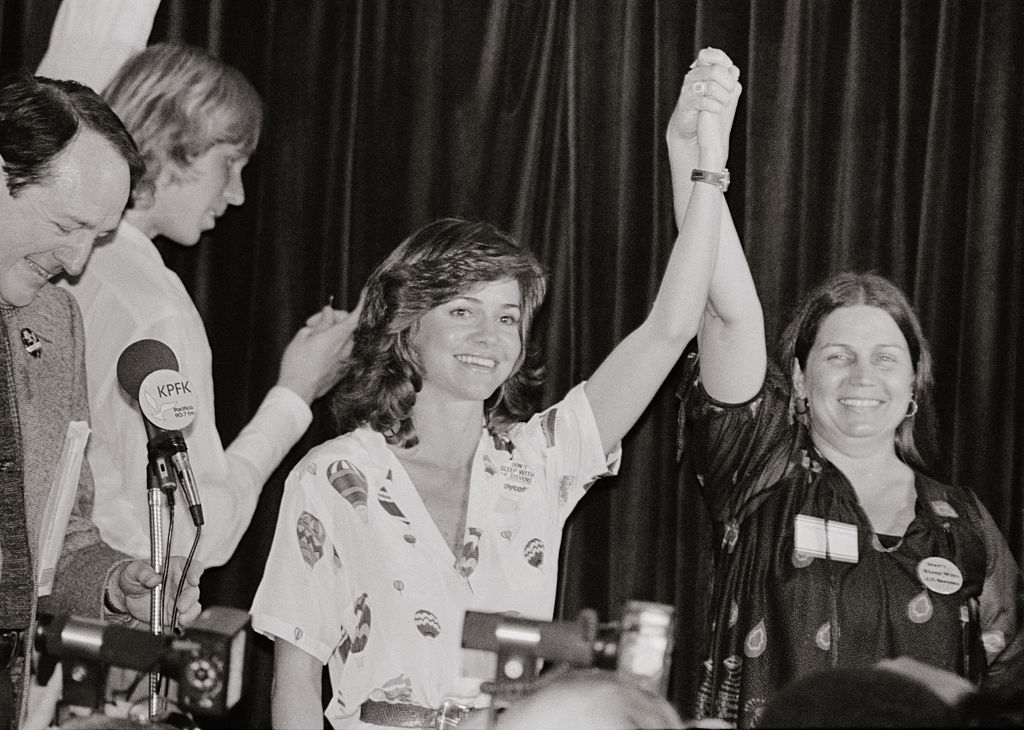
One of the biggest obstacles she faced was her ex-boyfriend, Burt Reynolds, a well-known actor who was jealous and unsupportive of her ambition. When she tried to explain that the role was just part of her job, Reynolds mocked her, dismissing her acting aspirations and questioning her choices. He disapproved of her playing Norma Rae and, in an infamous remark, told her that no woman of his would ever portray a character like that.
Sally recalled the moment she first watched the film, sitting in a small screening room at Fox Studios next to her mother. She was overwhelmed with fear, questioning whether she was truly capable of holding an audience’s attention for two hours. Despite her anxiety, she pushed forward with the role.
On the final day of filming, Reynolds unexpectedly arrived on set and proposed to Sally with a diamond ring. She rejected his proposal, feeling that it was not the right decision for her, and the awkward moment left her with little to say other than a polite thank you. As the production wrapped up, Sally felt a newfound sense of confidence and independence. It was as though her personal growth mirrored that of her character, something that did not sit well with Reynolds, who reacted with visible disapproval.
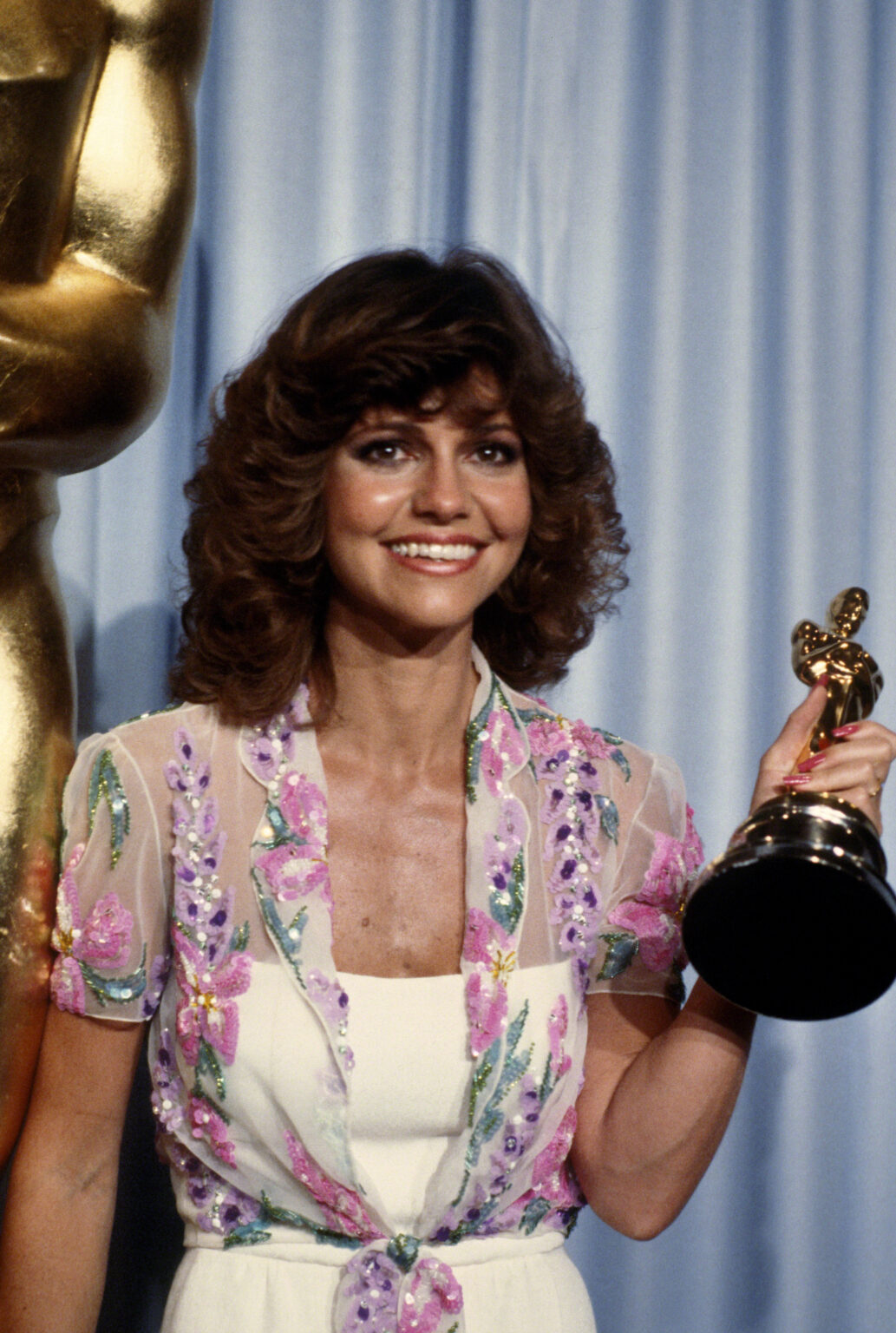
To fully prepare for the role, Sally spent time working in a textile mill, immersing herself in the world of Southern factory workers. She wanted to understand their daily struggles, their exhaustion, and the toll the work took on their bodies and minds. Along with her co-star Beau Bridges, she spent two weeks in a factory, experiencing firsthand the relentless vibrations of the weaving room, which she described as making her feel seasick. Even though she did not work full shifts, she felt as though just a couple of hours in that environment lasted an entire day.
Norma Rae was filmed in Opelika, Alabama, even though the real-life events that inspired the story took place in Roanoke Rapids, North Carolina. Many local residents participated as extras, portraying factory workers when production began in May 1978. The textile mill where the movie was shot had been operating since 1900 but eventually shut down in 2004, and it was demolished in 2016. One of the greatest challenges during filming was the constant hum of the factory, which made it difficult to capture the actors’ dialogue on camera.
The arrival of a Hollywood production in the small Alabama town was a significant event, and the community was eager to witness the excitement firsthand. Sally Field even met with the state’s governor at the time, George Wallace, while many locals hoped for a glimpse of Burt Reynolds, the megastar they assumed would visit the set. Though Reynolds did make brief appearances, it was Sally Field who left the most lasting impression on the town. People who worked with her during filming described her as down-to-earth, recalling how she dressed in worn-out clothes before filming to fully embody her role.
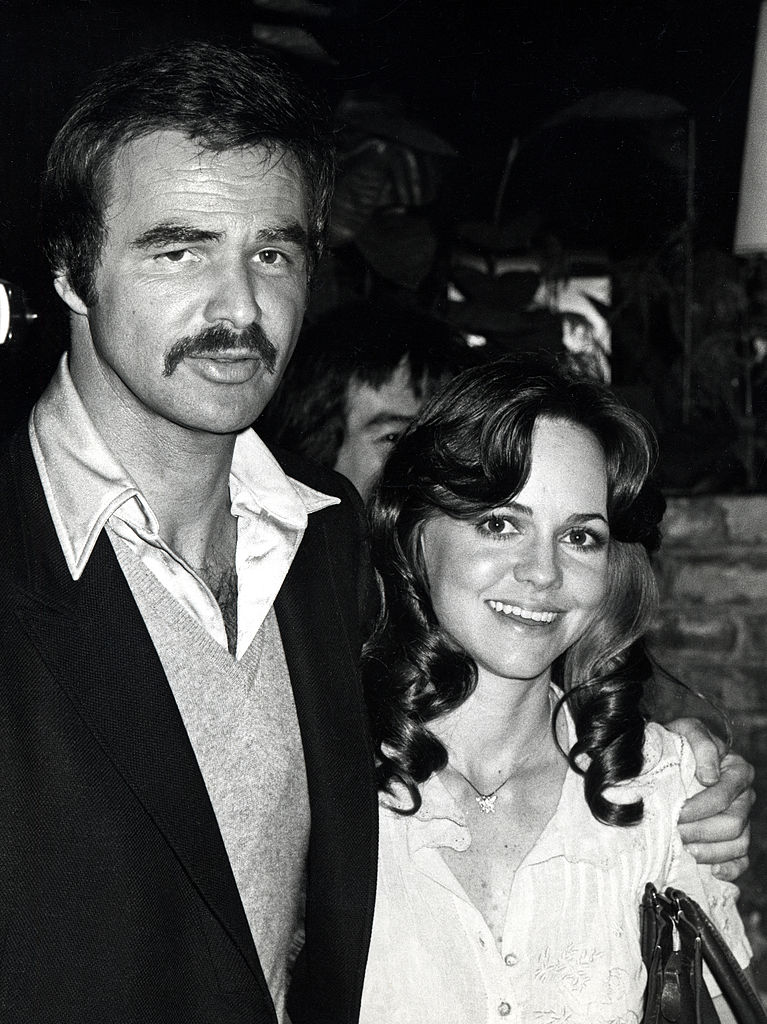
The real-life inspiration behind Norma Rae was Crystal Lee Sutton, born on December 31, 1940. She grew up in Roanoke Rapids, where the community was starkly divided between factory workers and those in positions of power. Throughout her childhood, she observed how textile workers were looked down upon and excluded from opportunities that were easily accessible to the children of doctors, lawyers, and business owners.
Crystal Lee began working at sixteen, taking on late shifts at a textile plant by the time she was seventeen. She had her first child at nineteen and tragically lost her first husband soon after. By the age of twenty-one, she had two children and later gave birth to a third in 1965.
Her fight for workers’ rights became widely known in 1973 when she was fired from the J.P. Stevens textile plant for her union activism. At the time, she was a thirty-three-year-old mother of three earning just $2.65 an hour folding towels. The 1979 film Norma Rae was inspired by her story, based on Henry Leifermann’s book Crystal Lee: A Woman of Inheritance.
Director Martin Ritt, who brought Norma Rae to life, once commented on Crystal Lee Sutton’s bravery, acknowledging that he had met many well-educated women who would never have had the courage she displayed. However, despite being the real-life inspiration behind the film, Sutton was not entirely pleased with how her story was portrayed. She had hoped for a more educational, documentary-style film about labor rights rather than what she considered a romanticized Hollywood version.
Sally Field was also deeply moved by the film, breaking into tears when she witnessed the audience’s reaction at the Cannes Film Festival premiere. However, despite the film’s financial success, Sutton received no payment for her story. She eventually sued 20th Century Fox and was awarded a modest settlement of $52,000, half of which was taken by taxes. She used part of the money to pay off debts and bought her husband a used Pontiac Trans-Am as a token of appreciation for his support.
Meeting Sally Field in 1980 was one of the highlights of Sutton’s life. The two women posed together in triumph, with Sutton recalling how they talked about their children and how Field offered to help her in any way she could. Sutton passed away on September 11, 2009, at the age of sixty-eight, following a battle with brain cancer.
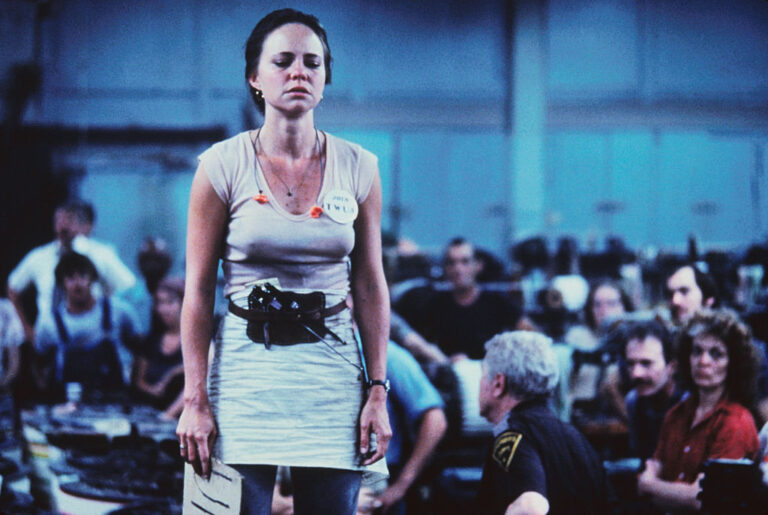
In the film, one of the most famous scenes features Norma Rae standing on a work table holding a cardboard sign that says “UNION” as her coworkers turn off their machines. This moment was inspired by a real event in Sutton’s life when she stood on a table, holding up a similar sign, prompting workers to shut down the factory in a show of solidarity.
The movie’s promotional poster, however, has long been a topic of debate. Instead of featuring the iconic union sign, it shows a polished image of Sally Field raising her hands, a change that some believe downplayed the film’s message. Director Martin Ritt later admitted that he was not particularly invested in the labor movement and was more interested in telling the personal story.
Sally Field’s performance in Norma Rae was a defining moment in her career, marking her transition from lighthearted television roles to serious dramatic acting. She gave everything to the role, even sustaining broken ribs during a scene where she fought against being forced into a police car. When she won the Academy Award for Best Actress, she was both overjoyed and shocked, as even Burt Reynolds had doubted her success, refusing to accompany her to the ceremony.
Despite his discouragement, Field attended with the support of friends, and her triumph was undeniable. More than forty years later, Norma Rae remains one of the most influential films about workers’ rights, and Sally Field’s performance continues to resonate. Her journey to that moment was filled with struggle and sacrifice, but like Norma Rae herself, she proved that real success must be earned.
